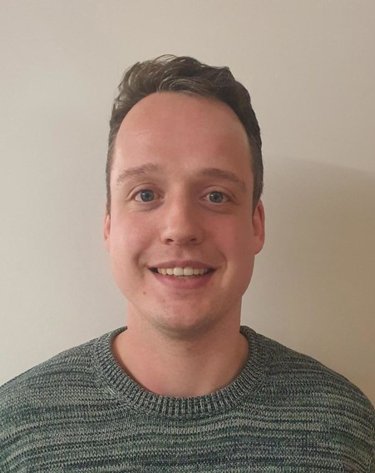Computational Methods for Bayesian Covariance Structure Modeling and Multi-Armed Bandit-Based Design of Clinical Trials
Stef Baas is a PhD student in the Department Mathematics of Operations Research. Promotors are prof.dr. R.J. Boucherie from the Faculty of Electrical Engineering, Mathematics and Computer Science and dr.ir. G.J.A. Fox from the Faculty of Behavioural, Management and Social Science.
 Randomized controlled trials are often called the gold standard for comparison of a novel treatment to the current standard of care. The go-to design is a parallel group design, where the choice of statistical analysis is often a test on a single primary outcome variable to assess treatment efficacy. A productivity crisis in the pharmaceutical industry has led people to reconsider the current standards, leading to the uptake of alternative designs.
Randomized controlled trials are often called the gold standard for comparison of a novel treatment to the current standard of care. The go-to design is a parallel group design, where the choice of statistical analysis is often a test on a single primary outcome variable to assess treatment efficacy. A productivity crisis in the pharmaceutical industry has led people to reconsider the current standards, leading to the uptake of alternative designs.
Alternative approaches, listed as solutions to the productivity crisis, include methods to combine multiple outcomes from one participant and Bayesian approaches. Another listed solution is adaptive designs, an example being response-adaptive designs that adjust the proportion of patients allocated to a particular treatment based on interim data analyses. This thesis provides methodological contributions in these directions and focuses on Bayesian covariance structure modeling and multi-armed bandit-based response-adaptive clinical trials.
The first part of the thesis considers Bayesian covariance structure modeling, which is a Bayesian multivariate statistical approach that can be used to efficiently analyze high-dimensional data with a multilevel structure (e.g., multiple outcomes per participant). We develop models and efficient inference methods for multi-way nested interval-censored survival data and balanced multi-way nested and crossed continuous data and show that our approach leads to a more efficient and reliable way of analyzing the data than the commonly used multilevel random intercept models. The thesis furthermore provides a comparison of methods for combining multiple outcomes based on sources from the literature, with special attention to patient-reported outcomes and patient-centric trials.
The second part of the thesis considers response-adaptive clinical trial designs based on multi-armed bandit algorithms. Multi-armed bandit algorithms aim to maximize a certain objective (e.g., the sum of rewards) by sequentially sampling rewards from one of several unknown distributions, trading off learning and earning. An often-mentioned application is clinical trials. However, in part due to problems with statistical inference, the implementation of multi-armed bandit-based procedures in clinical trials mostly limits itself to tuned versions of one specific algorithm, called Thompson sampling or Bayesian response-adaptive randomization.
The thesis aims to facilitate the implementation of other multi-armed bandit-based clinical trial designs (possibly having the potential to show higher expected treatment outcomes) by solving issues with computation and statistical inference for multi-armed bandit-based clinical trials. First, we develop and evaluate a general sampling-based approximation method to compute the Gittins index policy (having the potential to show very high expected treatment outcomes) for general models. Second, we develop a constrained Markov decision process approach to, e.g., construct response-adaptive procedures that maximize expected outcomes in binary clinical trials while controlling the Bayesian average power and type I error. Third, we develop and analyze exact tests for binary outcomes collected under a general response-adaptive design.
The defence will be preceded by a symposium, for more information see: https://www.utwente.nl/en/choir/events/Stef-symposium/

